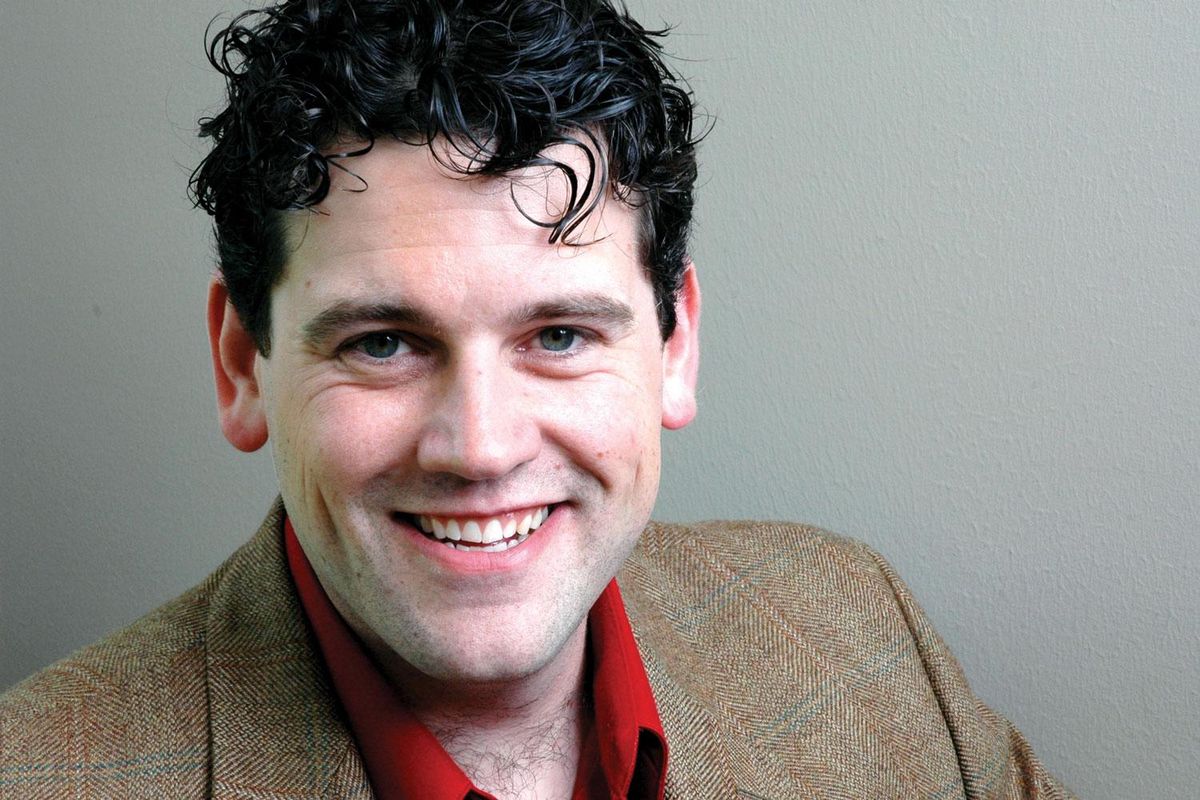Opera CdA gets groovy with a high-flying ‘Barber’

Opera Coeur d’Alene, under the artistic direction of Aaron St. Clair Nicholson, has placed us once again in their debt. By combining high artistic standards with cheeky, imaginative production concepts, the company has given us another treasured theatrical experience, this time of Gioachino Rossini’s much beloved 1816 work “Il Barbiere di Siviglia,” or “The Barber of Seville.”
In an effort to allow the audience to enter more easily into the comedy, Nicholson and his co-director, Jadd Davis, moved the setting to Las Vegas of the 1970s, placing the action in and around the Seville Hotel and Casino, and freeing themselves to introduce a steady stream of camp allusions to disco balls, bell-bottoms and cocaine snorting.
Friday evening’s audience took great delight in this, and while opera aficionados may blanch, it must be admitted that the original plot is a mere tissue of silliness derived from antique Roman comedy, and that some judicious meddling should not be deplored. The key is to observe high standards in the execution of the music and dialogue, which was punctiliously done in this production, as it was in the company’s earlier presentations of “Rigoletto,” “La Boheme,” “Die Zauberflote” and others.
Much of the credit for this goes in this case to the musical direction of Anthony Barrese and the orchestra, largely hand-picked from the ranks of the Spokane Symphony. In such a small group, the contribution of each member is completely exposed, especially when, as in this case, no amplification is used. Under Barrese’s baton, the details of Rossini’s brilliant orchestration were meticulously observed, without ever detracting from the impulsive forward movement of the comedy
Barrese’s accomplishment was all the more notable given the dazzling level of the vocal soloists, especially the evening’s romantic leads, Madison Leonard as Rosina and Victor Robertson, the Count Almaviva. Leonard, who grew up in Coeur d’Alene and was impressed as a child by performances of opera she attended there, is possessed of a luscious coloratura-mezzo voice of impressive range and agility. Rossini’s vocal writing demands the same virtuosity from a singer that Paganini’s music requires of a violinist, and that, along with a consistently vibrant and engaging dramatic presence, is just what Leonard delivered.
Robertson’s contribution can be similarly described, which is quite remarkable, since few tenors have the ability to negotiate Rossini’s florid writing accurately, much less with the elegance and beauty of tone Robertson maintained.
The part of Figaro was taken by Andrew Wilkowske, whose warm baritone and beautiful, idiomatic Italian provided pleasure throughout the evening. He was not as comfortable as some other members of the cast with the coloratura elements of his part, blurring some rapid passagework and approximating pitch at points of Figaro’s “Largo al factotum.” Still, such quibbles were swept aside by his winning stage presence and delicious delivery of the physical comedy required of him in Nicholson and Davis’ conception.
The authority of the production was greatly enhanced by the presence of Kevin Glavin in the role of Rosina’s lecherous and possessive guardian, Dr. Bartolo. Glavin has performed the role with such major companies as the San Francisco and New York City operas, and his utter mastery was everywhere evident, though there was never a hint of routine. On the contrary, his ability to inhabit his character totally, while maintaining perfect vocal poise and immaculate diction, seemed to inspire everyone onstage, and the audience, as well, if the warm ovation at the final curtain was any indication.
In the role of the music-master, Don Basilio, Jamie Offenbach nearly stole the show whenever he appeared onstage. For all the goofiness of his character, conceived as continually high on cocaine, Offenbach never scanted his attention to vocal production and characterization, which were exemplary in his rendition of the great aria-scene “La Calunnia” (“Gossip”).
More than any other art form, opera has the power to nourish simultaneously our senses, mind and spirit. We are fortunate that, at Opera Coeur d’Alene, such nourishment lies close at hand.